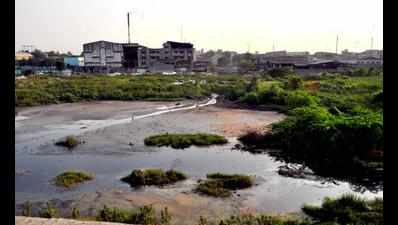- News
- City News
- surat News
- Bharuch industries urge CPCB to relax deep-sea effluent discharge norms
Trending
This story is from March 29, 2021
Bharuch industries urge CPCB to relax deep-sea effluent discharge norms

The issue was raised at a webinar organized by the CPCB with stakeholders of the Common Effluent Treatment Plant (CETP)
Bharuch/Surat: The various industrial association in the state has requested the Central Pollution Control Board (CPCB) to revise its inlet norms of effluent for the coastal and deep-sea discharge from the current 250 and 500 milligrams per litre (mg/ltr) of COD (chemical oxygen demand) respectively.
The industry players have demanded that the inlet effluent discharge norm be increased to 500 & 1,000 mg/ltr of COD for coastal and deep-sea respectively.
The issue was raised at a webinar organized by the CPCB with stakeholders of the Common Effluent Treatment Plant (CETP) across the country on Friday. The purpose of the meetings was to assess the performance and issues faced in the management and operating CETPs.
The industry representatives claimed that current discharge norms were not achievable. They said that various studies conducted to assess the impact of high COD in deep-sea and coastal areas had found that dilution in the deep-sea, especially in the Gulf of Cambay was very high.
Most of the effluent from Gujarat-based chemical industries is discharged into the Gulf of Cambay and no adverse effect has been observed in the past 20 years, claimed industry players from Bharuch and nearby industrial estates.
They brought to the notice of CPCB that several state pollution control board including the one in Gujarat and industrial associations had made earlier made representations to relax norms for deep-sea and coastal discharge.
Subsequent to which studies were also carried out by various agencies including the National Institute of Oceanography (NIO), National Environment Engineering Research Institute (NEERI) and Central Salt & Marine Chemicals Research Institute (CSMCRI). The industry players claimed that three institutes observed that there was no degradation of the environment the Arabian sea at the proposed discharged points.
The industry players have demanded that the inlet effluent discharge norm be increased to 500 & 1,000 mg/ltr of COD for coastal and deep-sea respectively.
The issue was raised at a webinar organized by the CPCB with stakeholders of the Common Effluent Treatment Plant (CETP) across the country on Friday. The purpose of the meetings was to assess the performance and issues faced in the management and operating CETPs.
The industry representatives claimed that current discharge norms were not achievable. They said that various studies conducted to assess the impact of high COD in deep-sea and coastal areas had found that dilution in the deep-sea, especially in the Gulf of Cambay was very high.
They further asked the union ministry of environment and forests (MoEF) to change the norms to something that is achievable.
Most of the effluent from Gujarat-based chemical industries is discharged into the Gulf of Cambay and no adverse effect has been observed in the past 20 years, claimed industry players from Bharuch and nearby industrial estates.
They brought to the notice of CPCB that several state pollution control board including the one in Gujarat and industrial associations had made earlier made representations to relax norms for deep-sea and coastal discharge.
Subsequent to which studies were also carried out by various agencies including the National Institute of Oceanography (NIO), National Environment Engineering Research Institute (NEERI) and Central Salt & Marine Chemicals Research Institute (CSMCRI). The industry players claimed that three institutes observed that there was no degradation of the environment the Arabian sea at the proposed discharged points.
End of Article
FOLLOW US ON SOCIAL MEDIA










